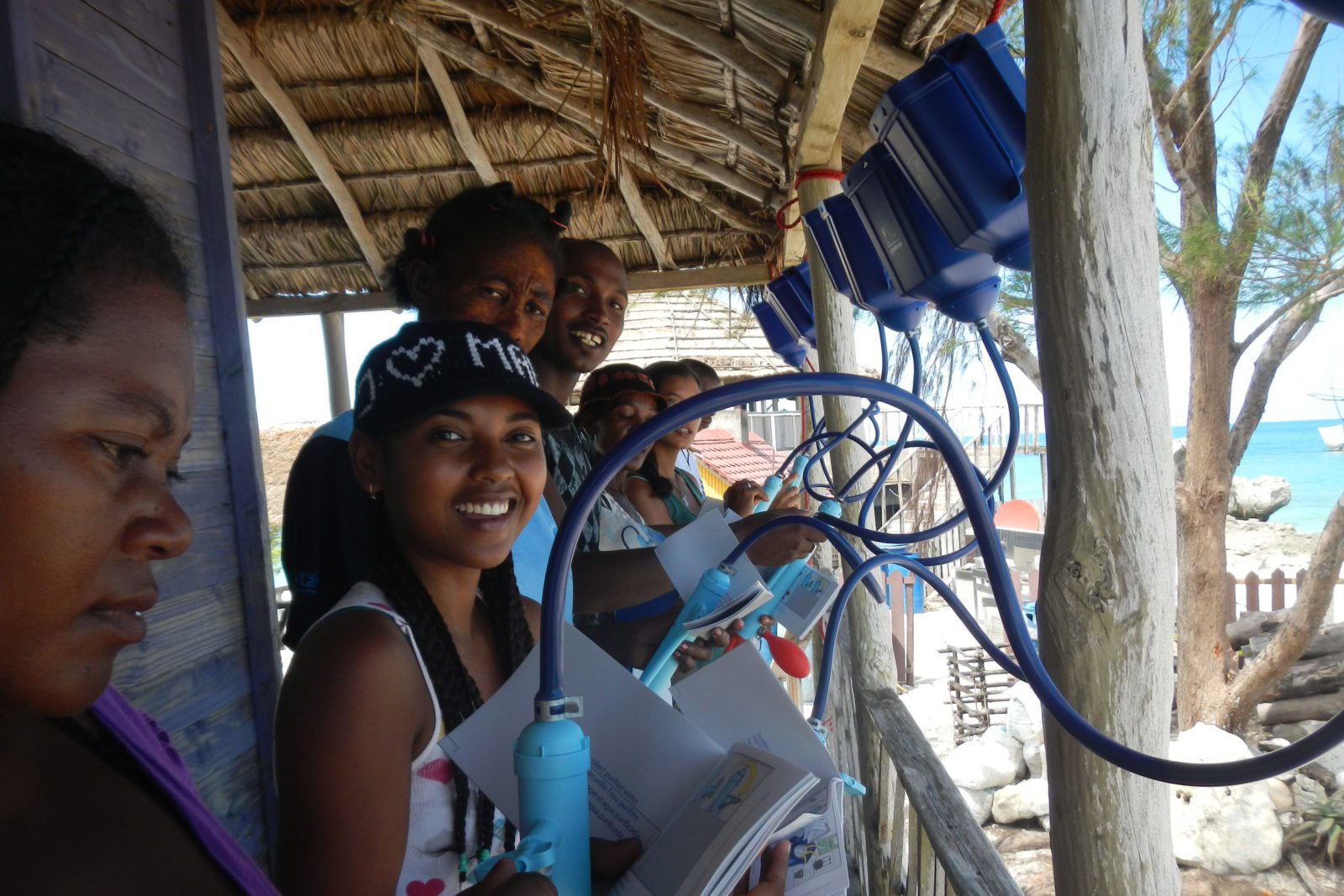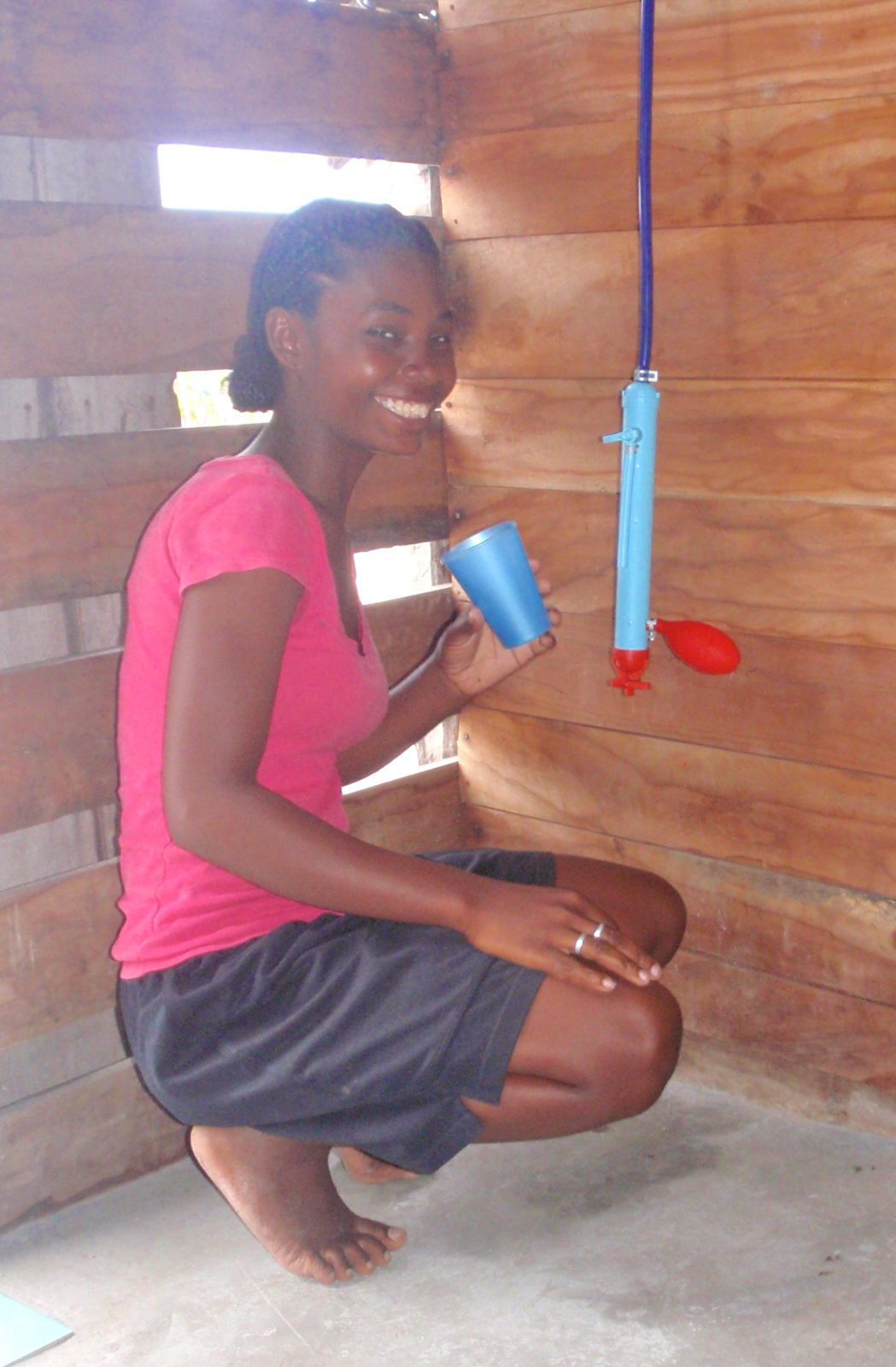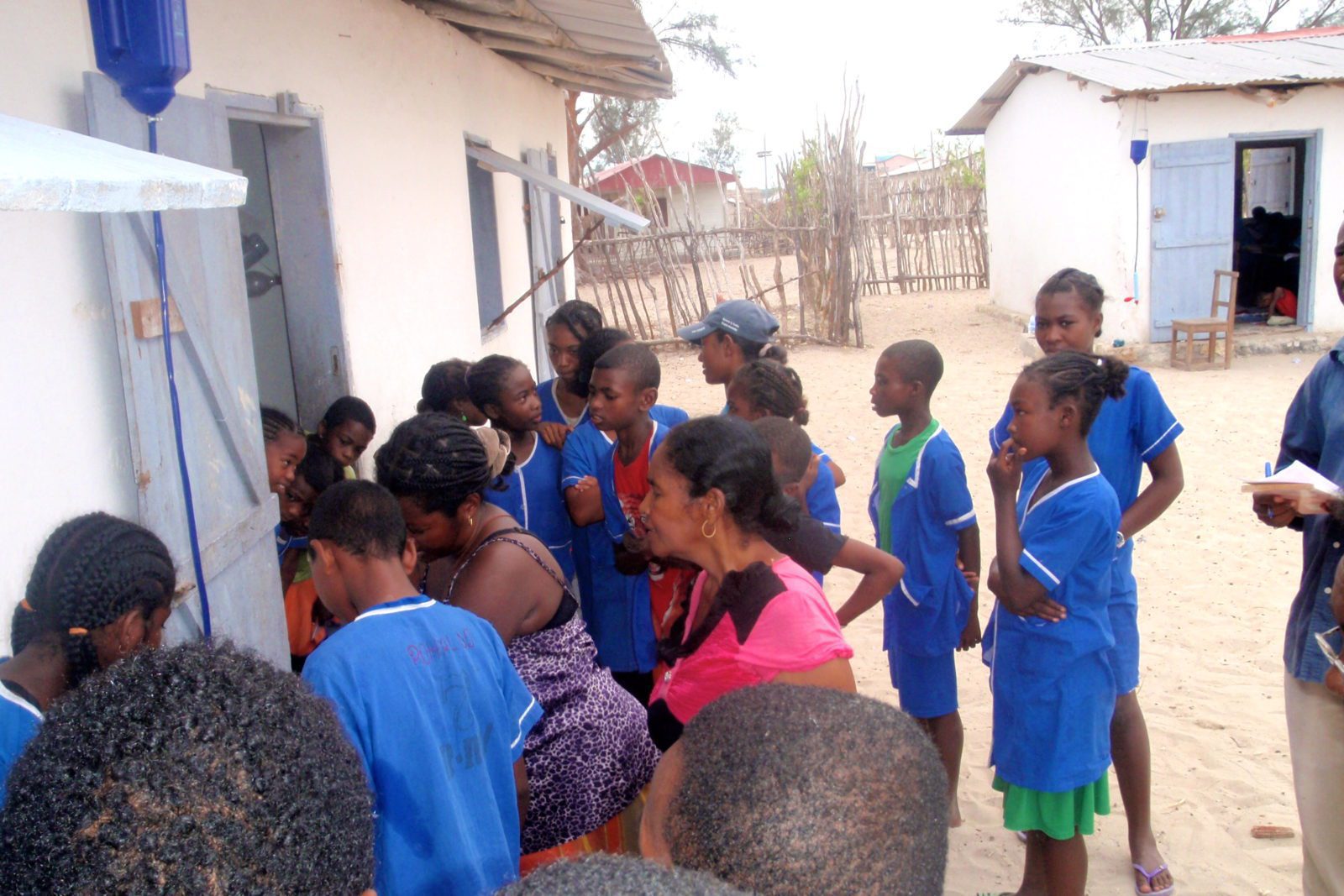Blue Ventures is continuing to respond to cyclone Haruna, which hit southwest Madagascar as a powerful category 2 storm exactly one month ago on 22nd February 2013. For previous updates about the situation, please follow the links here and here and here.
Since the cyclone swept through the remote Velondriake area where Blue Ventures works, communities have been struggling to access clean water. Wells have been contaminated by runoff mixed with rubbish and human waste, and a significant proportion of the population is suffering from diarrhoea. Malaria is also high risk because standing water is providing ideal breeding grounds for mosquitos, and people sleeping out in the open since their homes have been destroyed are particularly vulnerable.
Thanks to the phenomenal response to Blue Ventures’ special appeal, our community health team is currently working with our well-established network of community-based distributors to reach isolated villages in and around Velondriake – home to some 15,000 people – with vital health information and supplies including water purifying solution, diarrhoea treatment kits and insecticide-treated mosquito nets.
We are also partnering with the relief organisation ShelterBox to get 200 of their water filters called Family Lifestraws to vulnerable communities in the remote commune of Befandefa. Peter Pearce, ShelterBox’s representative in Toliara, explains how this collaboration developed: “In areas where ShelterBox is distributing emergency shelter kits, people already had adequate access to clean water, so the Family LifeStraws were not needed. When we heard from Blue Ventures that there were other villages struggling to access clean water, we decided to see how we could work together to reach those most in need.”

Blue Ventures’ staff and community-based distributors trial the Family LifeStraws received from ShelterBox
Through this partnership, Blue Ventures is setting up filtering stations at contaminated water points in villages across Befandefa, with multiple LifeStraws at each location that can be used by community members, with support from designated and trained supervisors. Each Family LifeStraw can filter up to 10 litres of water per hour and has a lifespan of around 18,000 litres of water per filter. Our community-based distributors are sensitising people about how to use these LifeStraws and the benefits of doing so. ShelterBox has showcased this successful partnership in their special World Water Day news article as a prime example of the benefits of cooperation.
The introduction of these water filters has generated a palpable sense of excitement among communities in Velondriake! We have already installed Family LifeStraws in several schools and at accessible points throughout numerous villages, and uptake has been very encouraging.

Voahirana likes the water that has been filtered through a Family LifeStraw because it tastes really pure and she knows that it is clean
Voahirana, a young woman from Andavadoaka, explained to our community health team that she knew access to clean water was a problem following the cyclone, and she was worried when her two children, aged 3 and 6 years old, fell sick with diarrhoea. Thankfully they are better now, and she is making sure that all of their drinking water is filtered at the nearby Family LifeStraw station. She really likes the filters as they make the water taste very good! Inaseline, another young women from Andavadoaka, told our community health team how she was scared about the dangers of drinking contaminated water after the cyclone hit, as she had a young child who died from a water-borne illness last year. She is pregnant now and really wanted to be sure that she was drinking clean water, so she is very happy that the LifeStraws have arrived in Velondriake, as she can be confident that the water from “the blue tube” will keep her healthy.
In addition to supporting our community-based distributors to provide vital health information and supplies to isolated villages affected by the cyclone, Blue Ventures is also continuing to advocate and communicate about the situation on their behalf. We remain in contact with several news agencies including IRIN and AFP, and we also contributed to a recent discussion organised by the Wilson Center on the social dimensions of resilience [statement at 1:58].
This experience of front-line disaster response has prompted Blue Ventures to think more deeply about how we can strengthen our health work as part of our on-going PHE programme in order to nurture community resilience to natural disasters and support community adaptations to climate change. For example, we are witnessing how the problem of open defecation in our partner villages has led to many wells becoming contaminated by floodwater in the wake of cyclone Haruna, and communities are clearly recognising these links too, so working with them to improve sanitation is a renewed priority for Blue Ventures going forward.
Our integrated PHE approach is based on an understanding of the interconnected challenges of poor health, population growth, environmental degradation, unsustainable natural resource management and food insecurity. Evidence suggests that unmet family planning needs can contribute to climate change vulnerability, so we consider providing reproductive health services as an important way of boosting community resilience. Our permanent presence in the region will enable us to transition our emergency response into a longer-term capacity building effort, with our on-going PHE programme underpinning this work to ensure that our partner communities are empowered to become more resilient to natural disasters in the future.
Please note that we will be closing our special appeal next Friday 29th March 2013.


